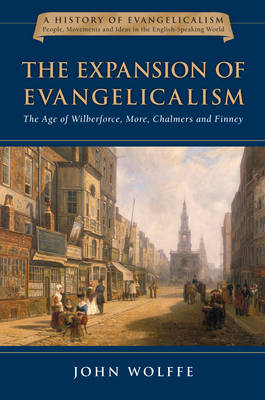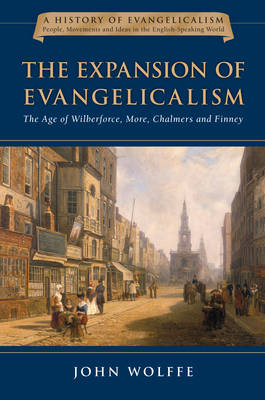
- Retrait gratuit dans votre magasin Club
- 7.000.000 titres dans notre catalogue
- Payer en toute sécurité
- Toujours un magasin près de chez vous
- Retrait gratuit dans votre magasin Club
- 7.000.0000 titres dans notre catalogue
- Payer en toute sécurité
- Toujours un magasin près de chez vous
The Expansion of Evangelicalism
The Age of Wilberforce, More, Chalmers and Finney Volume 2
John WolffeDescription
At the beginning of the nineteenth century the village of Clapham in Surrey still enjoyed a sense of distance from the bustle of London. There the group of evangelicals who would come to be known as the Clapham Sect regularly gathered. William Wilberforce, leader of a long campaign against the slave trade, commiserated with the other inheritors of the fledgling British evangelical movement, now in its second, more politically and culturally savvy generation.Meanwhile, evangelicalism had also taken root in much harsher social and geographical landscapes, where it was witness to much more rough-edged expressions of Christian conviction. In the bleak industrial valleys of northern England, in the mining and fishing villages of Cornwall, and on the expanding American frontier, a period of intense revivalism was leading to the rapid expansion of Methodism and other forms of popular evangelicalism. It shaped a spirituality that emphasized the transience of this world and the reality of the Christian's true security in heaven.In The Expansion of Evangelicalism John Wolffe provides an authoritative account of evangelicalism from the 1790s to the 1840s. Making extensive use of primary sources, Wolffe skillfully balances British and American developments, and also discusses Canada, Australia, the West Indies and other regions. He covers aspects of the movement such as spirituality and worship; the place of evangelicalism in the lives of women, men and the family; and its broader social and political effects--giving particular attention to the question of slavery.Volume two in the acclaimed series, A History of Evangelicalism, this richly detailed, compelling book will excite history buffs, students and professors, and any reader interested in the development of evangelicalism.
Spécifications
Parties prenantes
- Auteur(s) :
- Editeur:
Contenu
- Nombre de pages :
- 280
- Langue:
- Anglais
- Collection :
- Tome:
- n° 2
Caractéristiques
- EAN:
- 9780830825820
- Date de parution :
- 17-05-07
- Format:
- Livre relié
- Format numérique:
- Genaaid
- Dimensions :
- 163 mm x 228 mm
- Poids :
- 585 g

Les avis
Nous publions uniquement les avis qui respectent les conditions requises. Consultez nos conditions pour les avis.






